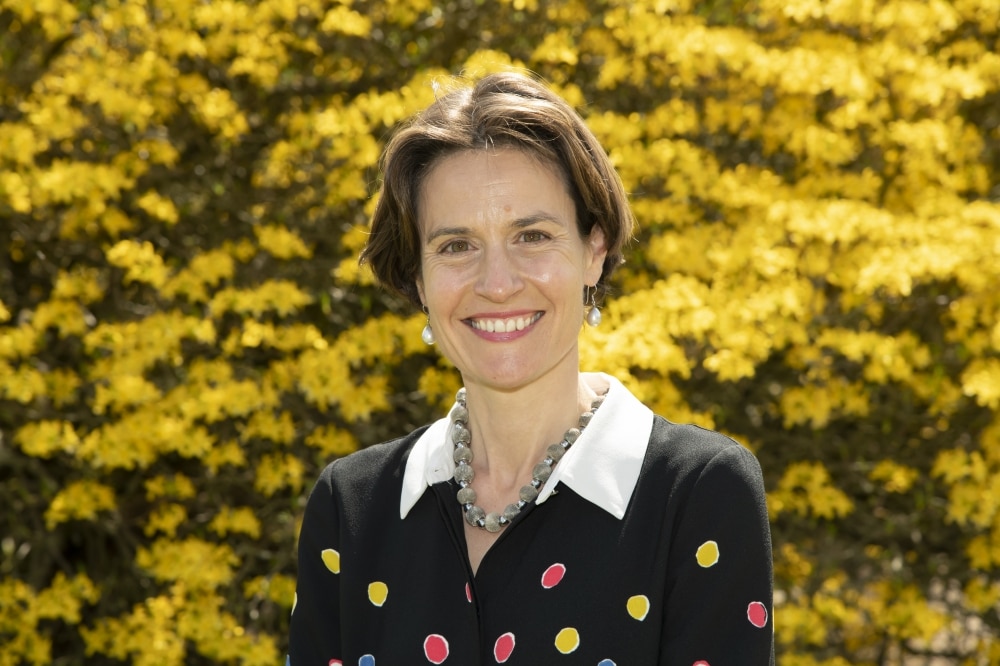SAMANTHA Price, Headmistress of the prestigious independent Benenden School, addressed more than 100 Heads of the Girls’ School Association (GSA) at the organisation’s annual conference, which was held in Manchester, at the end of last year. The theme of the conference was: Girls – The Voice for Positive Change.
In her speech, Mrs Price acknowledged that the younger generation don’t always approach their protests in the best way but said it was a school’s job to help teach students how to conduct themselves when campaigning so that they can effect lasting change.
“What has really stuck me is that this so-called ‘woke’ generation are actually simply young people who care about things: about causes, about the planet, about people. It ultimately comes down to something very simple: being kind,” she remarked.
Mrs Price went on to say that the past 18 months had seen national and international outcry and demand for justice and action on an array of issues.
“Black Lives Matter, the revelations of Everyone’s Invited, high-profile violence against women and the sharp focus on ongoing widespread misogyny in society and the workplace – with police forces being the latest example – gender identity and climate change have all featured as the focal points for those we educate to rightly demand that we address.
“It is fair to say that these are themes that our students are genuinely very anxious about, and feel a responsibility to address and they expect us to lead and support them in this. There is a sense more than ever that they will be inheriting this world from our generation, and it is their responsibility to fix it.”
Mrs Price added that there wasn’t one school leader in the UK who hasn’t been affected, and had to respond to this in the past 18 months and she also believes this agenda will not lose momentum:
“I firmly believe that it is here to stay. What an exciting time therefore to be leading a school, and especially a girls’ school, as we collectively consider the skills that we need to develop to equip this wonderful generation of future female leaders to truly have their voices heard and to make a lasting difference.
“Every generation believes that the older generation does not understand them. In recent years there have been many references to this generation being ‘woke’ – meant in a derogatory sense – and adults commenting that they feel today’s teenagers are speaking a different language to them and that they can’t say anything without being corrected or ‘called out’ by these politically correct – or ‘woke’ – children.
“To a certain extent, as parents and school leaders, we can probably all relate to this in some way or other, but I am getting a little weary of hearing the older generation say, ‘you can’t say anything anymore’. The fact is that times have changed, and we simply need to keep up with them. It would be unforgivable for the older generation to close its mind to new ideas, to retreat to ‘the good old days’ and dismiss the energetic changes of this generation as something to be referred to in derogatory tones and sighs.”
Mrs Price went on to say that being ‘woke’ describes someone who has ‘woken up’ to issues of social injustice.
“I would say that if this word in its true meaning describes our teens, we have much to be proud of and hopeful for in this next generation and it is our duty to listen and nurture this. We should challenge anyone who dismisses this generation as ‘woke’, ‘cancel culture’ or ‘snowflakes’.
“This so-called ‘woke’ generation are actually simply young people who care about things: about causes, about the planet, about people. It ultimately comes down to something very simple: being kind. Isn’t that what we all want our toddlers to be: we teach them to be kind. And then when they grow up to be impressive, kind young people with an understanding and appreciation for the world around them, how can it be right that we mock them or dismiss them as unrealistic do-gooders?”
Mrs Price also stressed that teachers, as educators, had a ‘duty’ to help young people find and develop their voice.
“It is our duty to help them develop their voice, to help them embrace who they are and to support them to fight for what they believe in with an informed, educated voice that actively listens to the same extent as it speaks.”
Mrs Price then outlined a series of initiatives that GSA schools have been working on: “In the past year many of our schools have established or developed pupil-led inclusion groups, appointed inclusion leads in our schools, put time aside to explore what inclusion looks like with staff and re-written PSHE (Personal, Social, Health and Economic Education) in response to the changes to RSE (Relationships and Sex Education) programmes. We are working hard to diversify our staff bodies, we are reviewing what and how we teach, and we are developing further understanding of both physical and neuro disability.
“This does not mean that our students inform how we lead – but it does mean that we continue to listen and respond.”
She concluded her speech by referring again to the theme of the conference: Girls – The Voice for Positive Change, saying: “I firmly believe that young women will increasingly lead the change that this generation are calling for. It is our job to teach them to discuss and debate the most sensitive topics with an active ear, to listen and respect differing opinions and nimbly present their case with strength, passion and conviction.”








